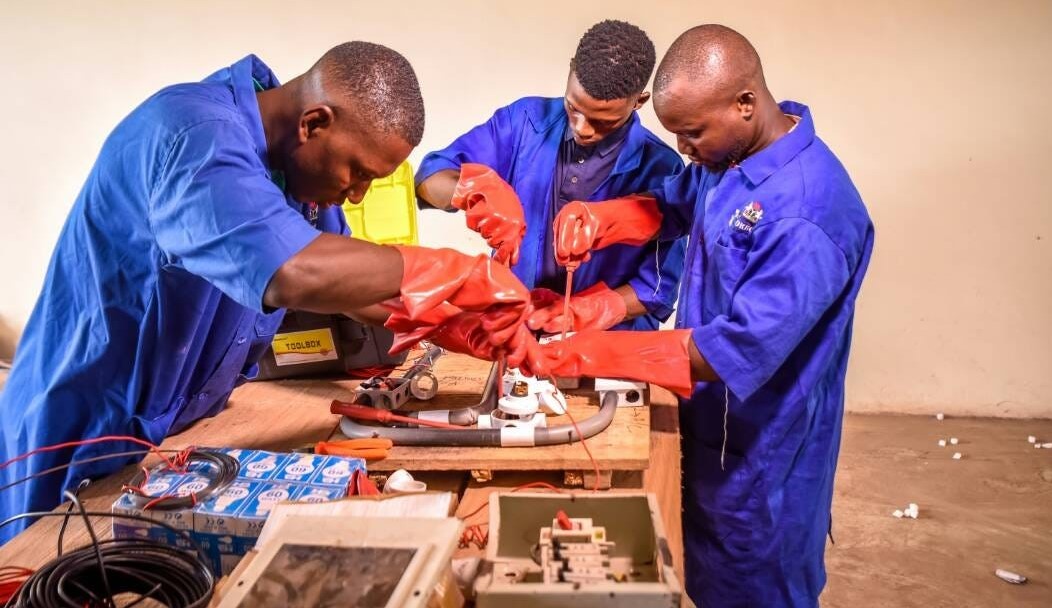By Isaac Atunlute
A quiet but powerful economic engine is at work in the bustling markets of Aba and Onitsha , powered mostly by mentorship and the culture of the Igbo ethnic group, located east of Nigeria.
The Igbo apprenticeship system (IAS) – known locally as “Igba Boi” or “Imu Ahia”- is an age-old practice that has cultivated successful entrepreneurs from humble beginnings. Deeply rooted in southeastern Nigeria, the system thrives on community trust and shared responsibility, serving as a time-tested model for local economic empowerment.
Ancient system, modern impact
The IAS operates primarily in two forms: ‘Imu-Oru Aka’ (learning a craft or skill) and ‘Imu-Ahia’ (learning to trade). Whether it’s tailoring, carpentry, electronics or simply buying and selling, the system covers a wide spectrum of economic activities.
At the core of the model is the relationship between the Nwaboi (apprentice) and the Oga (master). Over a period of five to seven years, young apprentices learn the technicalities of a trade but also business ethics, customer service and survival strategies.
Upon completion, a process known as settlement occurs, where the master supports the apprentice with capital and equipment to establish their own venture, thus continuing a cycle of mentorship and economic growth.
Chukwuemeka Collins, who runs a shoemaking business, recalls the lessons of perseverance and respect that he learnt as an Nwaboi in Abuja. “I was sweeping the floor and running errands, punished for any mistake done. Now, I have three shops.”
In a recent survey conducted among 50 Igbo business owners in Ibadan’s Dugbe Market, 98% confirmed that they had undergone IAS training.
Apprenticeship is not unique to the Igbo alone. In ancient Greece, young men were apprenticed to masters to acquire trades. Similarly in mediaeval Europe, guilds emerged where skills were transferred across generations.
The IAS distinguishes itself through its strong communal ties and informal yet structured mentorship.
Drawbacks
For all its merits, the model is fraught with shortcomings. Instances of exploitation and arbitrary dismissal of agreements are not uncommon, and not all stories are triumphant.
“After six years of serving my Oga, he accused me of stealing his money, without any proof to show, he pointed me to the door without any pay, I had to start afresh,” recalls Emeka Ejiofor, who served under a master in Onitsha.
Experiences such as Ejiofor’s highlight the risks of an informal system that lacks legal safeguards.
In response, there are growing calls to formalise the system through written contracts, legal recourse, and oversight committees to ensure transparency and fairness.
Sustaining a legacy
The Igbo apprenticeship system remains a shining example of indigenous entrepreneurship, and to remain relevant, the IAS must integrate modern business practices and digital literacy into training. Also educating both masters and apprentices about their rights and responsibilities is also crucial.
Notwithstanding, the Nwaboi system stands as a testament to what community-based innovation can achieve.
The Igbo apprenticeship system (IAS), also known as “Igba Boi” or “Imu Ahia,” is a longstanding practice in southeastern Nigeria that has successfully cultivated entrepreneurs from modest beginnings, grounded in community trust and shared responsibility. Primarily taking place in Aba and Onitsha, the IAS operates in two main forms: learning a craft or skill (“Imu-Oru Aka”) and learning to trade (“Imu-Ahia”). The system works through a close mentorship relationship between the apprentice (Nwaboi) and the master, lasting five to seven years, during which apprentices gain both trade-specific skills and valuable business ethics. On completion, the master typically assists the apprentice in starting their own venture, thus perpetuating the cycle of economic empowerment.
Despite its success, the IAS is not devoid of issues. Reports of exploitation, lack of transparency, and arbitrary dismissals without compensation highlight the risks inherent to this informal structure. Incidents like that of Emeka Ejiofor, who was wrongfully accused of theft by his master, underline the need for reforms, including formalized contracts and legal protections to enhance fairness and accountability.
To sustain its legacy, the Igbo apprenticeship system must adapt by integrating modern business practices and digital literacy into training. Educating both masters and apprentices about their respective rights and obligations is equally critical. Despite challenges, the IAS remains a powerful example of indigenous innovation and community-driven economic growth.






